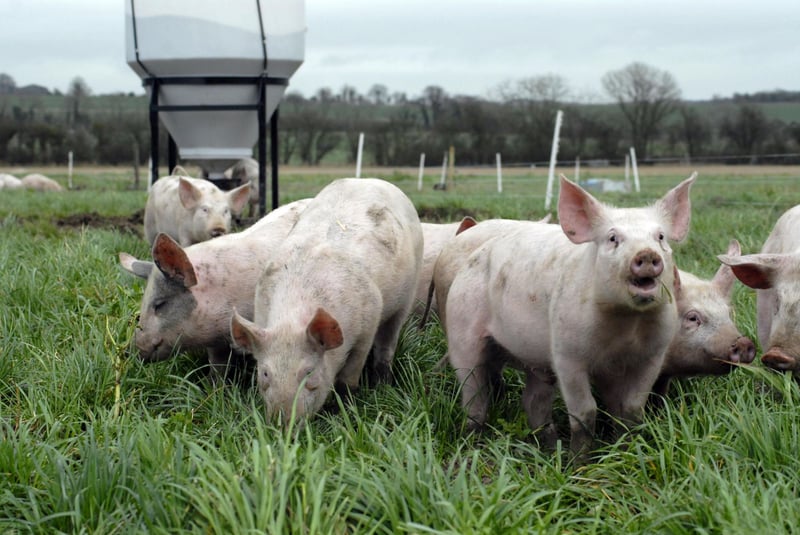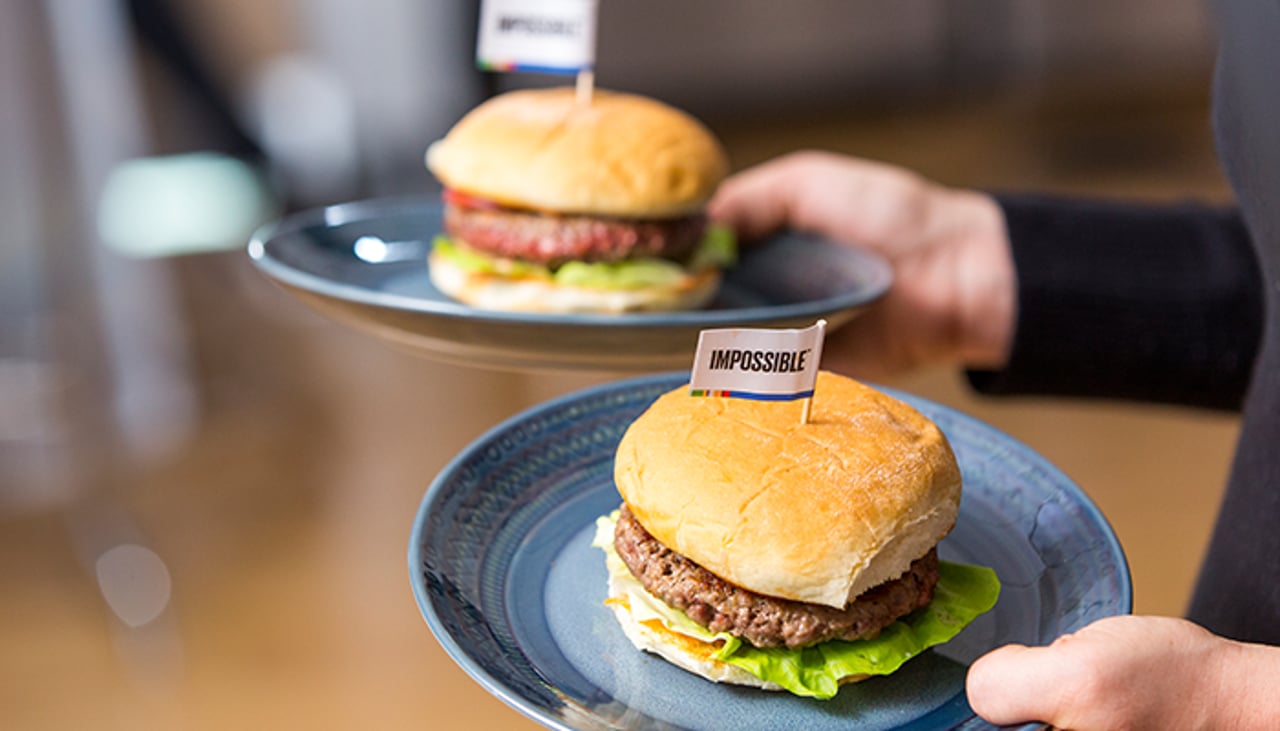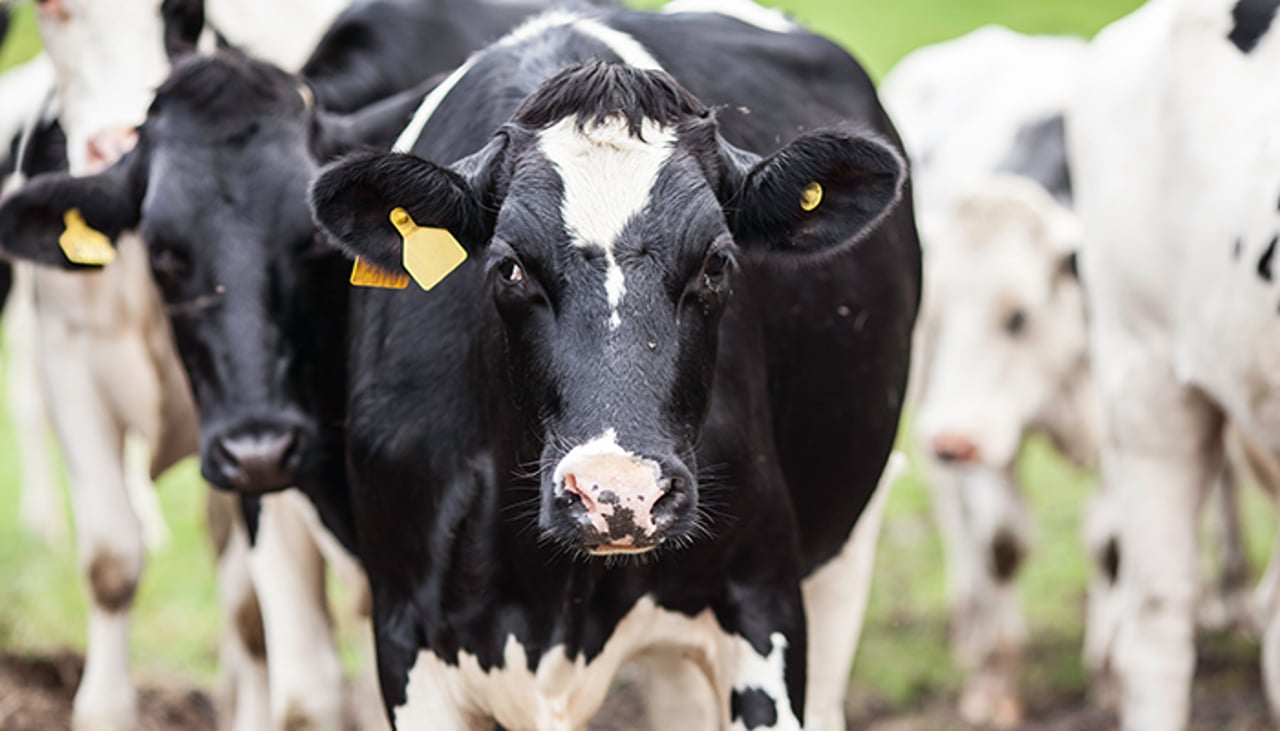
Fast Food’s Love of Plant-Based Meat Saves a Quarter Million Animals Per Year
Blog
Saving animals is what counts.
As we look back over the last year in food one thing is clear: From Burger King’s national rollout of the Impossible Whopper to Dunkin’s expansion of its Beyond Sausage Sandwich to more than 9,000 stores, 2019 was the year that fast food fell in love with meat alternatives.
But aside from all the hype and marketing, what do all these efforts mean for the numbers of animals spared from lifetimes of misery on factory farms?
At least nine national QSRs are currently serving Beyond Meat (including Denny’s, Subway, Del Taco, and TGI Friday’s) and around 18 are serving Impossible Foods (including Fatburger, White Castle, Qdoba and Red Robin). We know the number of stores and how big their portions are. In rare cases we’re given sales data, but this is something we largely have to estimate for reasons of business secrecy—we reached out to Impossible and Beyond for this research but both companies are keeping their cards close to their chest.
What we do know is that the typical beef cow produces around 500 pounds of meat and the typical pig around 130 pounds of pork. Using this information, we can estimate the number of cows and pigs saved as a result of people switching from beef burgers and pork sausages to plant-based alternatives.
Until recently, the X factor has been that we don’t know who is eating these newfangled plant-based options—for example, if only vegetarians buy the Impossible Whoppers then we won’t really be saving any animals—but a slew of new research data (1,2,3) means that we’re comfortable assuming roughly 90% of purchases are made by people who otherwise would have bought an equivalent animal protein product.
We have to make a number of other assumptions as well, for example, we take the word of business analyst, Andrew Charles, who is widely quoted as suggesting Burger King could sell 50 Impossible Whoppers per day, and apply that same figure to all the QSRs in our model. We also assume that stores are open 360 days per year and that we have a zero-sum game—i.e. that it’s not likely people are eating more food because of the new plant-based options, they are simply swapping out meat for meat alternatives, and in particular, they are swapping beef or pork for Impossible and Beyond.
Crunching the numbers shows us that between Impossible and Beyond estimated sales at national QSRs, around 140,000 pigs and 110,000 cows—or a quarter million total—will exit the food system every year.
This number may sound a lot, but it is a fraction of the 120 million pigs and 30 million cows killed for food in the U.S. every year and sold in groceries, supermarkets and other foodservice industries. Even Impossible Foods notes that its sales account for less than a tenth of a percent of ground beef sales.
So why the cause for celebration? Because each of these statistics represents an animal’s life saved; being spared from painful mutilations like teeth clipping, tail docking and castration, as well as a life of spent in cruel confinement. By consuming fewer animal-based meats, we are able to free up resources to move to higher welfare production and improve the lives for billions of farmed animals.
Impossible v. Beyond may be the Pepsi v. Coke rivalry of the current decade but the next wave of plant-based meats will focus on chicken and fish. Because these are smaller animals that are processed in significantly higher numbers, this is when we’ll really see the numbers soar.

